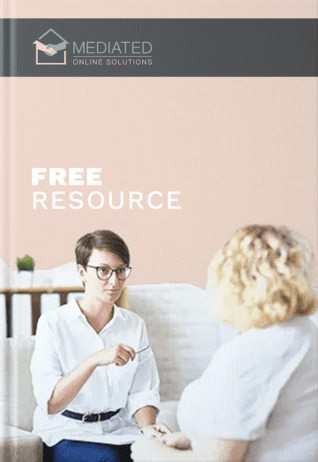
Do you ever wonder if you’re in an unhealthy relationship? Well, that may be your first sign. However, often toxic relationship patterns can be subtle and difficult to recognize. Then, over time, you may start to consider them normal when they are anything but. Or, maybe you have experienced or been around other relationships that are so clearly toxic red flags can be seen from a mile away and yours seems ideal by comparison. While no relationship is perfect, rationalizing or comparing aren’t good ways to gauge yours. Instead, here are clear signs you are in an unhealthy relationship and what to do about it.
1. Control
Specifically, one person in the relationship tries to control the other through intimidation, manipulation, or both. Controlling behavior may involve isolating a person from friends and family, cutting off access to finances so it’s hard to leave the situation, and/or trying to determine what you do and when. Then they lash out at you or make you feel guilty for any pushback or question of their behavior.
2. Lack of Trust
Another telltale sign of an unhealthy relationship is a lack of trust. And this can go both ways, you may feel like your partner is hiding things from you and you may also feel like you can’t share everything with them. Often, one feeds into the other creating a vicious cycle that leaves you both resentful. We’re not even just talking about deceit here, it may be that you don’t feel comfortable sharing your feelings, dreams, plans, etc. with your partner for fear they won’t understand or take you seriously, for example.
3. Poor Communication
This goes hand in hand with a lack of trust, and if that sentiment is present, you’re less likely to communicate effectively. However, poor communication entails many different issues such as ignoring problems, assuming the other person knows what you’re thinking or feeling, not listening, defensiveness, or even stonewalling to avoid confrontation. Sometimes, it’s not necessarily even poor communication entirely, but rather different communication styles that can lead to frustration, feeling unheard, and/or feeling misunderstood.
4. Disrespect
In an unhealthy relationship disrespect can take several forms. It can mean one person being dismissive of the other, rejecting the other, devaluing the other, name-calling, and even outright bullying or ridiculing the other person. Over time it can lead to anxiety and depression for the person on the receiving end. What’s more, this is one of the more overt behaviors in an unhealthy relationship and one that your children are likely to witness and/or model in their own behavior if left without consequence.
5. Drama
In any relationship, there will be arguments from time to time, but if you and your partner are rarely on the same page, disagreeing constantly, then that’s unhealthy. As is feeling like you always have to walk on eggshells to avoid upsetting the other person or giving up things you want or need to keep the peace. What’s more, if your partner is a high-conflict personality in other parts of their life, dealing with their disagreements with others can also be a constant source of stress. All this can negatively impact your children as well.
What To Do When You’re in An Unhealthy Relationship

Each relationship is different and can change over time and/or during periods of stress. So, having some of these issues occasionally may simply be a sign that you and your partner should consider counseling to better cope with them as a couple. However, if there is abuse of any kind−physical, verbal, or sexual−your first concern should be getting out of the situation and to a safe place.
On the other hand, if you experience more of these signs than not and you may think it’s time to end this unhealthy relationship altogether. Or even if you are willing to work on the relationship but your partner isn’t it may be time to walk away.
Mediation Can Help
If you are living together or are married you may need a more formal way to dissolve your relationship and determine the distribution of assets, child custody, child support, and alimony. Mediation can help as an easier, quicker, healthier, and more economical alternative to the formal process of litigation as long as both of you want to negotiate and you can reach an amicable agreement.
Keep in mind the mediator does not resolve these issues for you, rather they act as an intermediary to offer opinions, brainstorm solutions, and guide you in communicating effectively towards an agreement.
For additional information on how our online mediation services can help, contact our experienced team today to learn more.












